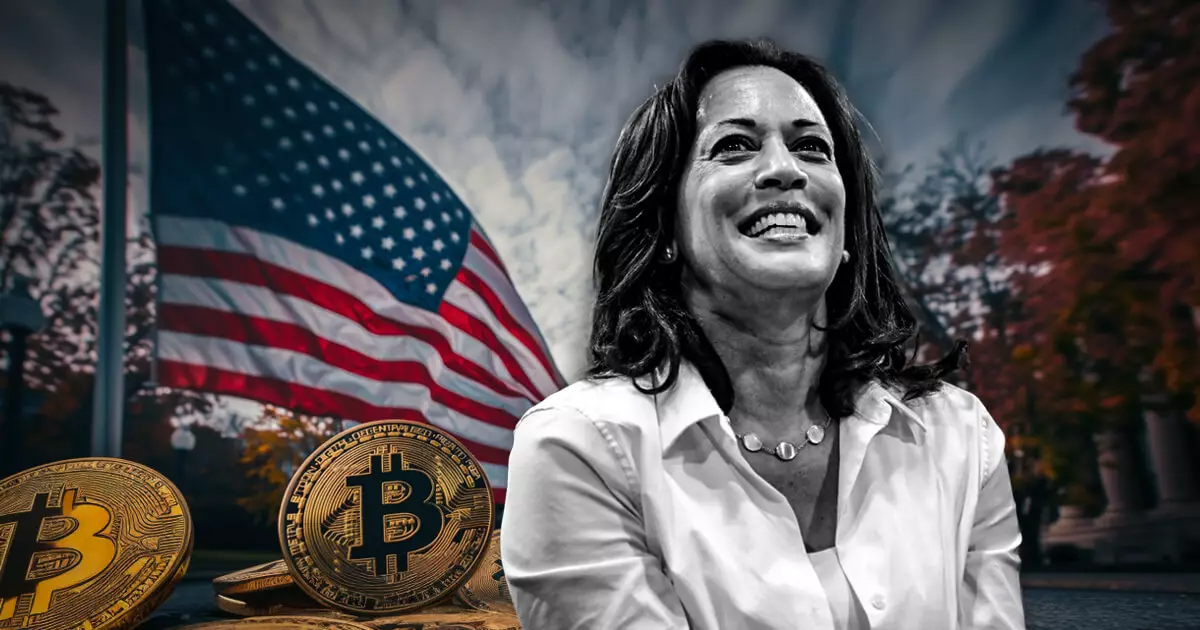In the ever-evolving landscape of cryptocurrency, the political climate in the United States can have profound effects on the industry’s fortunes. Recently, Alex Thorn, head of research at Galaxy Digital, analyzed the positions of the current presidential candidates regarding their approach to cryptocurrencies. This assessment is particularly timely given the potential pivot in policies that could either nurture or hinder the crypto sector depending on electoral outcomes.
Thorn’s analysis employs a “policy scorecard” that evaluates the candidates based on their proposed measures affecting cryptocurrencies. With Vice President Kamala Harris seeking election and vying for continued influence, Thorn argues that her victory may provide limited adverse repercussions for the industry compared to President Biden’s administration. Alternatively, Donald Trump, the former president, is portrayed as the candidate with the most favorable stance towards crypto-related policies. The pivotal question here is whether the crypto community can find an ally in their preferred candidate regarding its expansive potential.
This nuanced examination reveals a contrasting perception of each candidate’s approach to vital crypto-related issues such as taxation, Bitcoin mining, banking regulations, and self-custody. Each candidate’s position can significantly impact market confidence and investment dynamics going forward.
When it comes to taxation, the views of Harris and Trump diverge sharply. Thorn notes that Harris has adopted a notably adversarial stance, publicly committing to retracting tax cuts that were implemented by Trump, primarily benefiting wealthier Americans. Through her campaign rhetoric, Harris has signaled that her administration may impose stricter tax policies on both individuals and businesses engaged in the crypto space. In stark contrast, Trump is anticipated to bring clarity to digital asset tax regulations. His rhetoric indicates a supportive framework, potentially fostering a more conducive environment for cryptocurrency investments.
Additionally, Bitcoin mining has emerged as a critical theme in this political discourse. Harris’s views are remarked to be “slightly better” than the Biden administration’s punitive measures, such as the proposed 30% tax on mining activities. Conversely, Trump’s open support for Bitcoin mining—as seen in his meetings with industry leaders—positions him as a champion of this sector, defining it as an integral part of U.S. domestic manufacturing. As both candidates navigate this domain, the implications for miners could be substantial.
Banking regulations represent another significant point of contention. Insider discussions hint that Harris may soften Biden’s stringent Operation Chokepoint 2.0, which currently limits banking access for crypto companies. This suggests a potential pivot toward inclusivity for crypto businesses seeking banking partnerships. On the other hand, Trump’s commitment to dismantling these barriers reflects a clear and resolute support for the industry’s necessities, including opposing the implementation of a central bank digital currency (CBDC). Such a stance could unleash a flood of banking options for cryptocurrency firms, bolstering their operational capabilities.
In terms of self-custody rights, both candidates seem to traverse a gray area. Thorn notes that while Harris has not made definitive statements, past adviser sentiments reflect hostility toward self-custody. In contrast, Trump’s declaration to uphold self-custody rights during a major conference indicates a certain level of support for individuals wishing to maintain control over their digital assets. As the discussion around personal asset custody continues, how either candidate addresses this issue will shape the framework of user autonomy within the crypto market.
While Bitcoin sits predominantly unscathed by the impending electoral changes, the outlook for altcoins illustrates a more complex scenario. Should Trump regain presidency, regulatory clarity may pave the way for many altcoins to thrive, potentially outperforming Bitcoin. However, Harris’s administration could considerably challenge many existing altcoin positions. For tokens such as Uniswap’s UNI, Trump’s policy shifts could mean a surge in market confidence and investment opportunities.
The stakes are high in the approaching U.S. election, with each candidate’s policies carrying significant implications for the crypto market. A Trump presidency may present “explosive upside” potential for the cryptocurrency landscape, while a Harris victory introduces uncertainty, albeit not the severity experienced under Biden. As both candidates progress into the final leg of the election, the crypto community watches with keen interest to see whose vision for the future aligns more closely with its own aspirations and financial interests.



















Leave a Reply